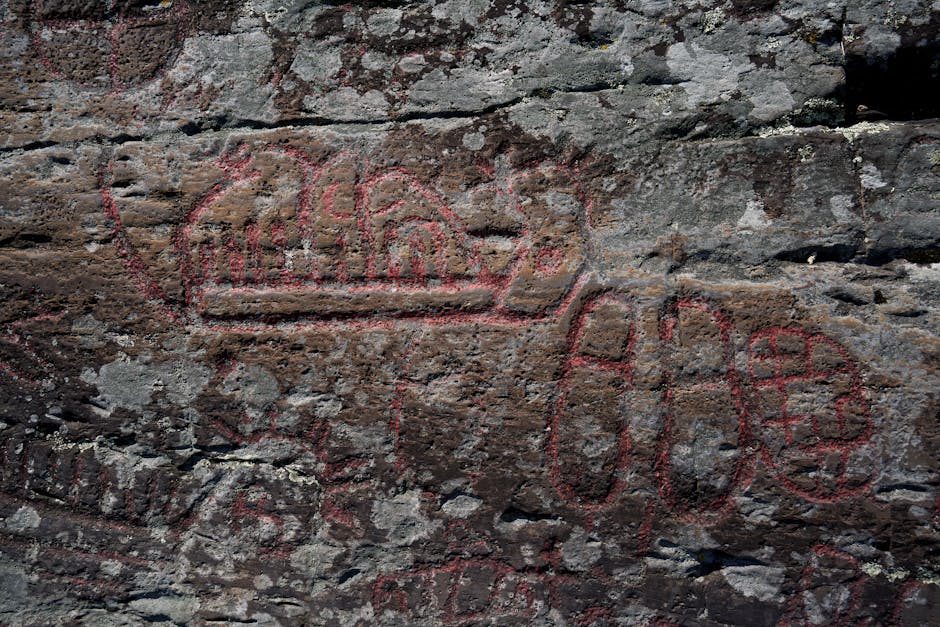⏱️ 5 min read
Top 10 Fun Facts About the Vikings
The Vikings, who ruled the seas from the late 8th to late 11th centuries, were far more complex than their popular reputation suggests. While often portrayed as mere raiders and plunderers, these Norse people had a rich culture, advanced technology, and fascinating customs that continue to intrigue historians today. Here are ten surprising facts about these remarkable seafarers that might change your perspective.
1. Vikings Never Wore Horned Helmets
Contrary to popular belief and countless movie depictions, Vikings never wore horned helmets in battle. This misconception originated from 19th-century Romantic artists and Wagner’s opera costume designs. Real Viking helmets were typically simple, dome-shaped affairs made of iron or leather, designed for practicality rather than decoration. Horns would have been impractical in battle and could have been dangerous to the wearer.
2. They Were Excellent at Personal Grooming
Despite their reputation as unkempt warriors, Vikings were known for their cleanliness. Archaeological findings reveal that they used various grooming tools, including combs, razors, and ear cleaners. They regularly bathed, changed clothes, and took pride in their appearance. Vikings were particularly fond of bleaching their hair blonde using strong soap with high lye content. Written accounts from English chroniclers even complained about Vikings’ cleanliness and how it helped them attract Anglo-Saxon women.
3. Viking Women Had Significant Rights
In Viking society, women enjoyed more rights and freedoms than many of their contemporaries in other cultures. They could own property, divorce their husbands, and inherit estates. Some women even became powerful merchants and explorers. Shield-maidens, though rare, did exist, and archaeological evidence suggests that some women participated in battles and raids. Women also played crucial roles in managing farms and households while men were away on expeditions.
4. They Were Skilled Navigators
Vikings developed sophisticated navigation techniques that allowed them to cross vast oceanic distances. They used sunstones (crystals that could determine the sun’s position on cloudy days), sun-compasses, and detailed knowledge of wind and wave patterns. They also relied on wildlife patterns, cloud formations, and the color of water to determine their location. These skills enabled them to reach places as far as North America, which they called Vinland.
5. Vikings Created a Complex Legal System
The Norse people established sophisticated legal codes and held regular assemblies called “things” where laws were made and disputes were settled. The Althing in Iceland, established in 930 CE, is considered the world’s oldest existing parliament. These gatherings were democratic in nature, where free men could voice their opinions and participate in decision-making processes.
6. They Were Accomplished Poets
Vikings had a rich oral tradition and valued the art of poetry highly. Skalds (poets) held esteemed positions in Viking society, often serving as court poets for kings and chieftains. They composed complex verses called “skaldic poetry,” which followed intricate rules of alliteration and internal rhyme. These poems preserved historical events, myths, and legends, providing modern historians with valuable insights into Viking culture.
7. Viking Ships Were Engineering Marvels
The longship was a masterpiece of naval engineering, featuring innovations that were centuries ahead of their time. These vessels were designed with clinker-built hulls (overlapping wooden planks) that made them flexible in rough seas. They could be rowed or sailed, operated in shallow water, and were light enough to be carried over land. The distinctive curved prow wasn’t just decorative; it helped prevent the ship from capsizing in rough waters.
8. They Engaged in Sports and Games
Vikings enjoyed various physical competitions and board games. Popular sports included wrestling, stone lifting, and a ball game similar to hockey called “knattleikr.” They also played strategic board games like Hnefatafl, a chess-like game that predated chess in Scandinavia. These activities weren’t just for entertainment; they helped maintain physical fitness and tactical thinking skills necessary for warfare.
9. Vikings Were Successful Merchants
While raiding was part of Viking culture, trade was equally important. Vikings established extensive trade networks stretching from North America to the Middle East. They traded valuable goods including furs, walrus ivory, amber, slaves, and weapons. Their commercial activities led to the establishment of important trading centers like Dublin, Kiev, and Novgorod, which later became major cities.
10. They Had a Complex Religious System
Before Christianity, Vikings followed a sophisticated polytheistic religion with rich mythology. Their pantheon included gods like Odin, Thor, and Freya, each associated with different aspects of life. They believed in multiple worlds connected by Yggdrasil, the world tree, and their concept of the afterlife included not just Valhalla but multiple possible destinations for the dead. Religious practices involved various rituals, sacrifices, and celebrations throughout the year.
These fascinating aspects of Viking culture demonstrate that they were far more than the one-dimensional raiders often portrayed in popular media. Their society was complex, innovative, and influential, leaving lasting impacts on European history and culture that continue to resonate today. From their advanced shipbuilding techniques to their sophisticated legal systems, the Vikings were truly remarkable people who helped shape the medieval world.


